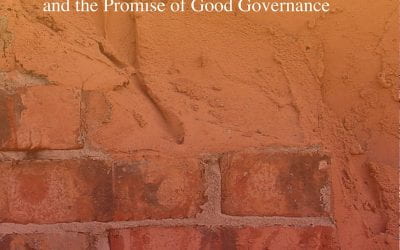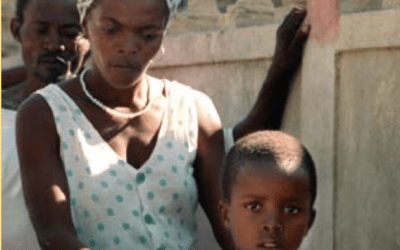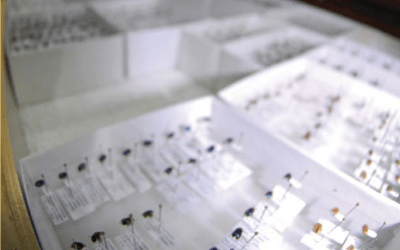Angeles D1
The precarious economic situation in which these young artists’ families live lead them to work in the streets from a young age. The “employment options” in the informal market in Lima are varied, from begging to the illegal commerce network in which many minors are exploited. In the midst of this hardly encouraging panorama, there are youth such as those who have joined Angeles D1 who voluntarily opt to dedicate their time to developing acrobatic and stage skills in order to perform in the city’s busiest street intersections in exchange for coins, as a type of itinerant theater.
The dance company transforms these youth from a social problem in the streets to a cultural and economic asset and provides access to new sectors of society. International celebrities, national entertainment professionals, and wealthy classes admire their performances. Many of the youth have been interviewed by the media as models of success or taught classes and led workshops on leadership and self-improvement in schools and private companies. Angeles D1 has harnessed some of these activities to make profit for the organization as well as contribute to the nonprofit mission by breaking down social barriers and gaining public recognition and compensation for the youths’ positive talents.
The Angeles D1 company was originally created with the goal of bringing the talent of these youth street artists to the formal theaters, giving them the opportunity to increase their economic income and perfect their artistic skills through constant training with national and international professionals in the stage arts. Nearly three years after its founding, Angeles D1 faces the challenge and urgency of providing sustainability to a project that requires expansion in order to remedy the multiple needs of these young artists, such as better nutritional habits and medical attention, academic and career advising, and more.
Angeles D1
Por Suzanne Jenkins and Paola Sofía Galarreta Espinoza-Dabbs
La compañía de danza Angeles D1 es un espacio donde confluyen artistas de múltiple procedencia y trayectoria, desde niños entre ocho y diez años que viajan casi dos horas diarias para llegar a la escuela de danza, hasta bailarines profesionales llegados desde Finlandia y USA. Todos ellos sienten una fuerte motivación por expresarse a través de las artes escénicas como break dance, hip hop, acrobacias, jazz, malabares, entre otras disciplinas. Quizás el grupo más representativo de esta compañía de danza son los chicos provenientes de sectores marginales y pobres de Lima, quienes en su mayoría fueron convocados a participar de este proyecto, luego de mostrar sus habilidades en las calles a manera de trabajo ambulatorio.
La precaria situación económica en la que viven las familias de estos jóvenes artistas, lleva a éstos a trabajar en las calles desde temprana edad. Las “opciones laborales” del mercado informal en la ciudad de Lima son diversas, desde la mendicidad hasta la participación en redes ilegales de comercialización, donde muchos menores de edad son explotados. En medio de este panorama poco alentador, existen muchachos que como los integrantes de Angeles D1 optaron voluntariamente por dedicar su tiempo al desarrollo de habilidades acrobáticas y escénicas, que mas tarde presentan al público en las intersecciones de las calles más transitadas de la ciudad, como un teatro itinerante.
La compañía de danza transforma a estos jóvenes, anteriormente un problema social en las calles, en un recurso cultural y económico y les abre acceso a nuevos sectores de la sociedad. Artistas internacionales, profesionales de la industria nacional de entretenimiento y las clases adineradas admiran su performance. Un número de los jóvenes han sido entrevistados por periódicos como modelos del éxito o han protagonizado talleres de liderazgo y superación en instituciones académicas y empresas privadas. Angeles D1 ha aprovechado algunas de estas actividades para ganar ingresos para la organización tanto como contribuir a su misión benéfica rompiendo barreras sociales y ganando el reconocimiento del público y remuneración por los talentos positivos de los jóvenes.
La compañía Angeles D1 se creó inicialmente con el objetivo de llevar a escenarios formales el talento de estos jóvenes artistas callejeros, dándoles la posibilidad de incrementar sus ingresos económicos y perfeccionar sus destrezas artísticas a través de una capacitación constante con profesionales nacionales y extranjeros de artes escénicas. Después de casi tres años de haber creado Angeles D1, surge el reto y la urgencia de dar sostenibilidad a un proyecto que requiere expandirse para suplir las múltiples necesidades de estos jóvenes artistas, como la mejora de hábitos nutricionales y de atención médica, asesoría educativa y de orientación profesional, entre otras.
Paola Sofía Galarreta Espinoza-Dabbs es una antropóloga peruana de la Pontificia Universidad Católica del Perú.
Related Articles
Review of Going Local: Decentralization, Democratization, and the Promise of Good Governance
This methodologically rigorous and carefully crafted book is an exercise in good scholarship. Like its subject of good governance, it is an embodiment of leadership, performance, accountability and a commitment to constructive policymaking. Merilee Grindl has already made her reputation as a painstaking scholar of governance, bureaucracy and policymaking in Latin America and across the developing world, but Going Local …
Making A Difference: Connecting the Diaspora with Caribbean NGOs
E.One.Caribbean, an initiative based at LASPAU, seeks to engage the Caribbean diaspora in reinvigorating their home countries by providing financial, volunteer, and capacity-building resources to NGOs whose work addresses the social problems that threaten long-term economic and cultural viability. The program was developed by Norris Prevost—a longtime member of the Parliament of Dominica and recent graduate of the …
Making A Difference: Insects and Internet: Saving a National Treasure in Hispaniola
On July 11, 2007, the oldest university in the Americas, the Universidad Autónoma de Santo Domingo (UASD), marked the first anniversary of the entry of its natural history collections into the digital global community. These priceless collections record the changing abundances of species over the 20th century, including many species new to science and some that are perhaps already extinct. The collections of insects alone are …




